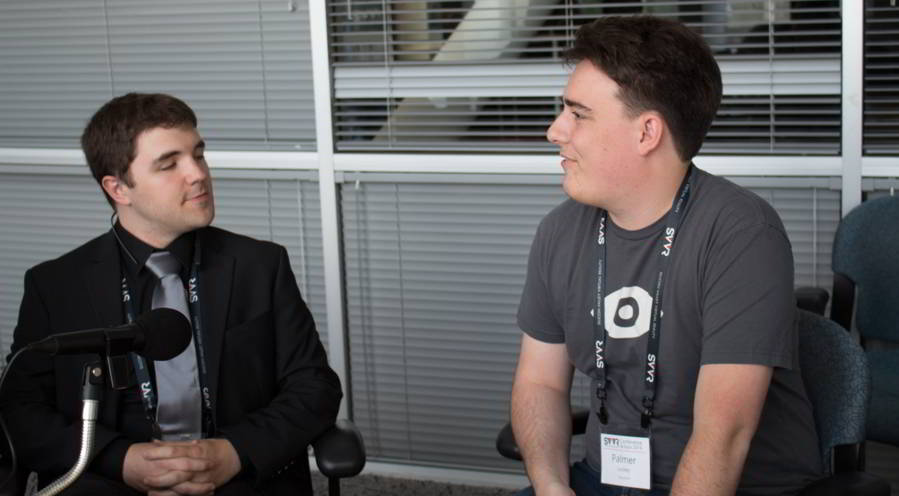During a panel that I was fortunate to moderate at last week’s SVVR Conference & Expo in Mountain View, California, EnterVR’s Cris Miranda offered up a question from the audience. He asked Palmer Luckey to elaborate on previous statements that building the virtual reality metaverse is a moral imperative.
Above you can see the relevant clip from the conference, and below is a transcript of Palmer Luckey’s answer.
“…this is one of those crazy-man topics. But… I guess it comes down to this… everybody wants to live a perfect life, everybody wants all of the things that make them happy and there’s only so much stuff in this world to go around and there’s more-and-more people to take out of those things and we only have so much to go around and it’s going to be impossible to give everyone everything that they want if you’re limited to what you can physically, actually build in the real world. I think that virtual reality has the potential to take a lot of things, especially luxury goods and other things that are not long term useful items but they’re pure waste items… if virtual reality was perfect, then it’d be easy to say, ‘oh well it’s absolutely perfect, identical to real life,’ then you’d be able to save a lot of these problems.
When you have that perspective, a lot of people say ‘well you know you’re not going to have perfect virtual reality for a very long time, so until it’s perfect, it’s useless,’ and I disagree with that perspective too because, for us, sitting here in the best country in the world, you know, in the best state in this country [laughs, applause, and cheers]… it’s easy for us to say, ‘ah, you know, virtual reality is not as good as the real world, so why would I want to spend my life in it?’ But there’s a lot of people around the world who don’t necessarily have lives that are as good as ours. I think that the bar for wanting to spend a huge amount of time in VR, to have a lot of value in your recreation in VR is much lower than it is for us.
And then there’s a bunch of others reasons: I think it’s going to be incredibly useful for training, I think it’s going to help revolutionize education… for all those reasons… I think there’s a lot of reasons that you can argue that it is a moral imperative that we create a perfect virtual reality.
Just to add one more thing to that: don’t take this to mean that in the next 5 or even 10 years we’re going to have perfect virtual reality. All of this morality stuff… it’s really getting into the sci-fi realm of you know ‘what will virtual reality eventually mean to society?’ and I think it’s really exciting to think about those things, but it’s also careful to not let it take up all of your everyday thinking because it’s so far off… it’s so easy to just spend your whole day day dreaming about what virtual reality is going to do and dream about all of these amazing societal impacts it has, but as it stands there’s just a lot of work that needs to be done… better to focus on that I think.”
I’ve often thought whether virtual reality will serve to increase or decrease the socio-economic gap. One one hand, I agree with Luckey that being limited to physical goods in the real world means that not everyone can have everything they might want, whereas if you’re in VR, it’s trivial to copy a digital product and give it to everyone (economists are going to have are already having lots of fun with how this impacts supply and demand). On the other hand, there could be a distant future where if you don’t have access to VR equipment, you’d be at a major disadvantage to everyone else. To put this into perspective, let’s consider a contemporary example: imagine looking for an IT job in today’s world without access to a computer or smartphone. It might just be impossible.
Sound off in the comments with your thoughts.







